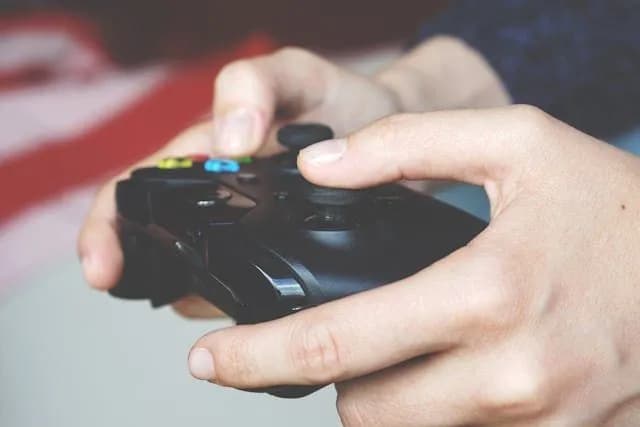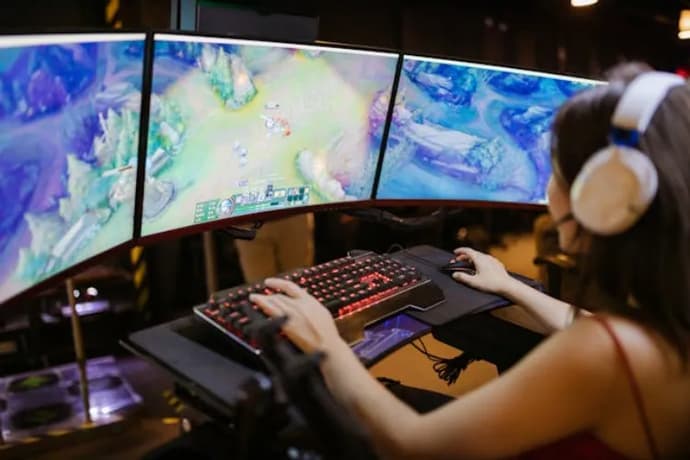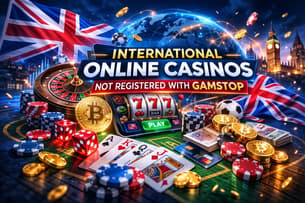
The Psychology of Winning or Why We Love Games and Competitions

From ancient gladiatorial competitions to modern esports, the human flare for games and competition disregards time and culture. Whether players are at stake in a poker game in one of the fast withdrawal casinos, in a neighbourhood soccer match, or a video game tournament, the enticement of competition is omnipresent.
But what makes us so very passionate about it? And what psychological mechanisms underlie the urge for the thrill of victory and the struggle in the contest? This paper looks into the psychology of winning, trying to establish what it is about games and competitions that drive us so much.
The Evolutionary Roots of Cooperation
The first step in appreciating our competition preference is considering how it has evolved. In fact, competition is one of the most fundamental concepts in the world of survival and reproduction. Ancestors had to compete for mates, resources, and social status because they were ultimately sources of opportunity for reproductive success. That would mean only those skilled at competition were likelier to live on and pass down their genes. The burning drive to compete and win is deeply embedded in our DNA.
Competition plays a pivotal role in our evolutionary framework, particularly in three key areas:
Resource Allocation: Competition for resources ensures only the most suited survive and access the essentials of existence.
Mate Selection: Demonstrating dominance in competitions can be very attractive to other mates. This would help an individual reach the zenith in the area.
Social Hierarchies: Dominance is established through competition in the in-group sequential social orders.
These primal drives, while they have evolved, still underpin our behaviour. Modern humans may not compete for survival in the same way, but the same impetus is channelled into sports, games, and other competitive activities. This insight into our evolutionary past sheds light on our present behaviour, revealing the enduring influence of competition on our lives.
The Thrill of Victory
Winning in competition puts people on an emotional high, which is majorly stimulated by neurochemical reactions within the brain. Winning causes a huge discharge of dopamine, a feel-good neurotransmitter. These discharges create feelings of pleasure and reward, further fueling the drive to compete and win.
Several psychological theories explain why people chase after wins.
Self-Determination Theory: The theory postulates that human beings have basic psychological needs of competence, autonomy, and relatedness. Winning satisfies the need for competence, as it shows mastery and skill.
Achievement Motivation Theory: Developed by David McClelland, the theory indicates that people are motivated by the motive of achievement. For them, victory is the concrete measure of success and achievement.
Flow Theory: According to Mihaly Csikszentmihalyi, flow is a state of complete absorption and involvement in any activity. Competition does, in fact, at times, create the preconditions for flow since it provides clear goals, immediate feedback, and a balance between challenge and skill.
Competition as a Social Thing
People are naturally social, and the social context of the competition is mainly vital to its attraction. In such social settings, games and competitions thrive as unifying social agents for people, giving them that sense of community and belonging that characterizes humanity. Such shared experiences of competition—be it a local sports league or an online gaming community—create a bond and social coherence.
Several social psychological factors help to explain the love of competition:
Social Comparison Theory: Leon Festinger postulated this theory. It states that people evaluate their own social and personal worth based on how they compare to others. Competitive competitions are clear examples of such comparisons.
Ingroup-Outgroup Dynamics: Competition tends to heighten one's perception of one's group's identity and cohesiveness compared to others. Supporting a team or being part of a competitive group fosters a sense of belonging and loyalty.
Public Recognition and Status: Success usually brings public recognition and elevated status within a community. This social validation can be a strong motivator.
While playing, you will inadvertently upgrade many useful skills. Navigate to this article to find out which skills you can develop while playing online games.
The Dark Side of Competition
While competition has many beneficial elements, it also has dark sides. The pressure to win can be worrisome and drive some to do bad things. The fear of failure can be just as paralyzing, and the desperate emphasis on winning can sometimes take away the joy of participating.
Some potential ill effects of competition may include:
Burnout and Stress: Unceasing performance pressure can lead to burnout and chronic stress, eventually affecting mental and physical well-being.
Cheating and Unethical Behavior: The desire to emerge victorious at any cost could lead to cheating, doping, and other unethical means.
Unfavourable Social Comparisons: An overemphasis on the competitive element might breed individuals who will lose most of the time, leading to negative self-comparisons associated with low self-esteem.
To stay on the good side of the competition, look at this article that explores five mistakes to avoid when you gamble online.

Balancing Competition with Cooperation
While competition is a part of and, in most instances, an essential human activity, cooperation should complement it. In contrast, cooperative engagements give us satisfaction about relatedness and connection with others in our environment, helping maintain team spirit and mutual support.
Strategies to create a balance:
Orienting to Personal Development: Instead of winning, orientation turns towards personal progress and mastery, significantly reducing the harmful component of competition.
Promotion of Sportsmanship: Encouraging fair play, respect for opponents, and love of the game can create a good competitive climate.
Build Competitive Games Around Cooperation: Competitive games with cooperative elements help strengthen social connections while minimizing the urge to win by any means necessary.
Conclusion
This love for games is born out of competition, and the psychology of winning goes very deep into our evolutionary past and psychology. From the rush of victory to the afterglow of masterful playing and even friendships that result from certain kinds of competition, one thing is sure: it keeps us returning for more.
Nonetheless, it behooves us to remember that, in most cases, the potentially harmful effects of excessive competition must be balanced with enhancing individual excellence to promote the collective good.
In the final analysis, this is more than games played and competitions engaged; it is the holding up of a mirror to our deepest drives, social structures, and the complex interplay between the need to succeed and the desire to belong.
In the field, in the ring, and cyberspace, the quest for victory is testimony to the resilience of the human spirit and its hunger for meaning, accomplishment, and connection.

Elen Stelmakh is a creative individual dedicated to advancing gaming culture through articles and visual design. As a full-time EGamersWorld author and designer for a gaming website, Elen not only creates content but also infuses it with energy and creativity.
 Roblox Anime Guardians Codes February 2026Discover all working Roblox Anime Guardians codes. Redeem for free Mystic Coins, Trait Rerolls, Artifacts, and rewards.
Roblox Anime Guardians Codes February 2026Discover all working Roblox Anime Guardians codes. Redeem for free Mystic Coins, Trait Rerolls, Artifacts, and rewards. Non-UK Online Casinos: Games, Formats, and What Players Can ExpectOnline casinos operating outside the UK gambling framework attract attention due to differences in licensing models, game portfolios, and promotional...
Non-UK Online Casinos: Games, Formats, and What Players Can ExpectOnline casinos operating outside the UK gambling framework attract attention due to differences in licensing models, game portfolios, and promotional... Bitcoin Casinos and Crypto Gambling Platforms for UK PlayersCrypto-based gambling platforms have become a noticeable segment of the global online casino market.
Bitcoin Casinos and Crypto Gambling Platforms for UK PlayersCrypto-based gambling platforms have become a noticeable segment of the global online casino market. Best International Online Casinos for UK PlayersThe online casino industry is an ever-rising sector acknowledged for its technology, extensive library of games, and the amount of revenue it generate...
Best International Online Casinos for UK PlayersThe online casino industry is an ever-rising sector acknowledged for its technology, extensive library of games, and the amount of revenue it generate...


